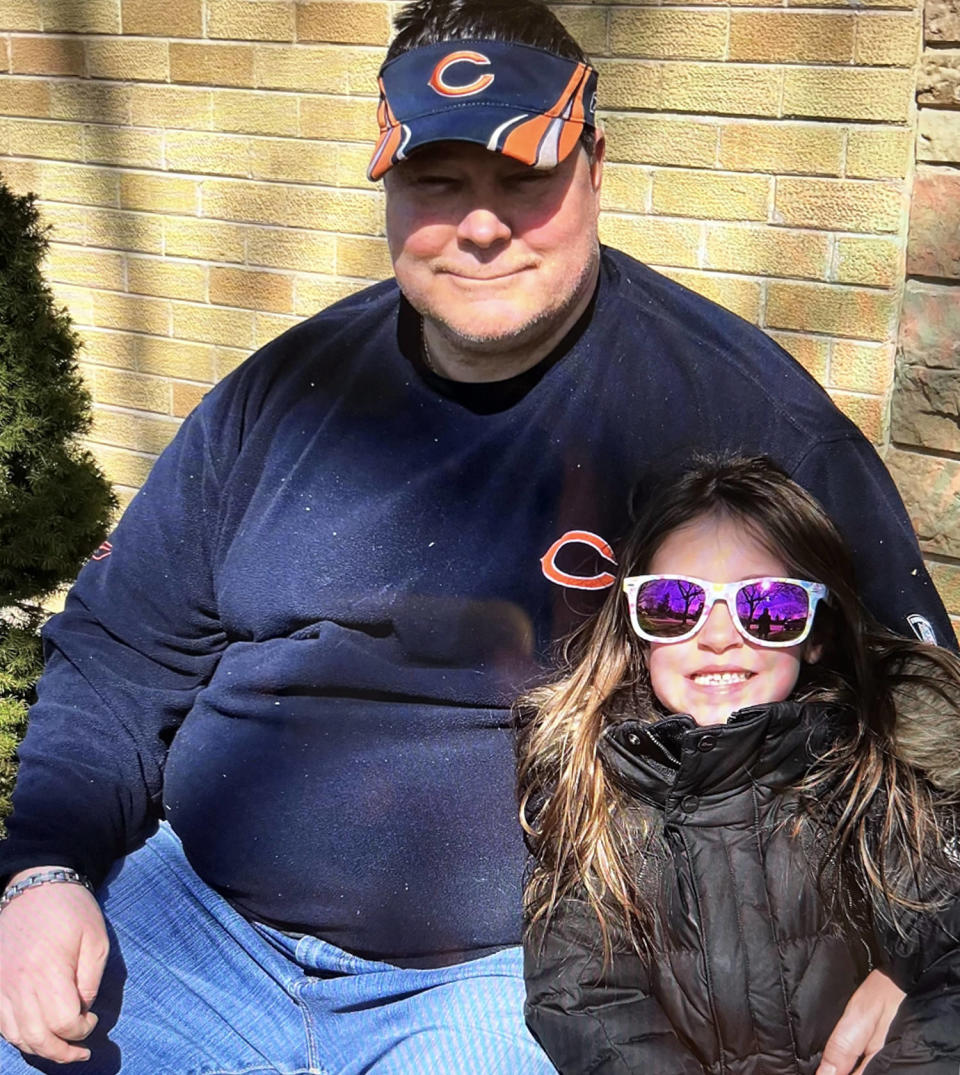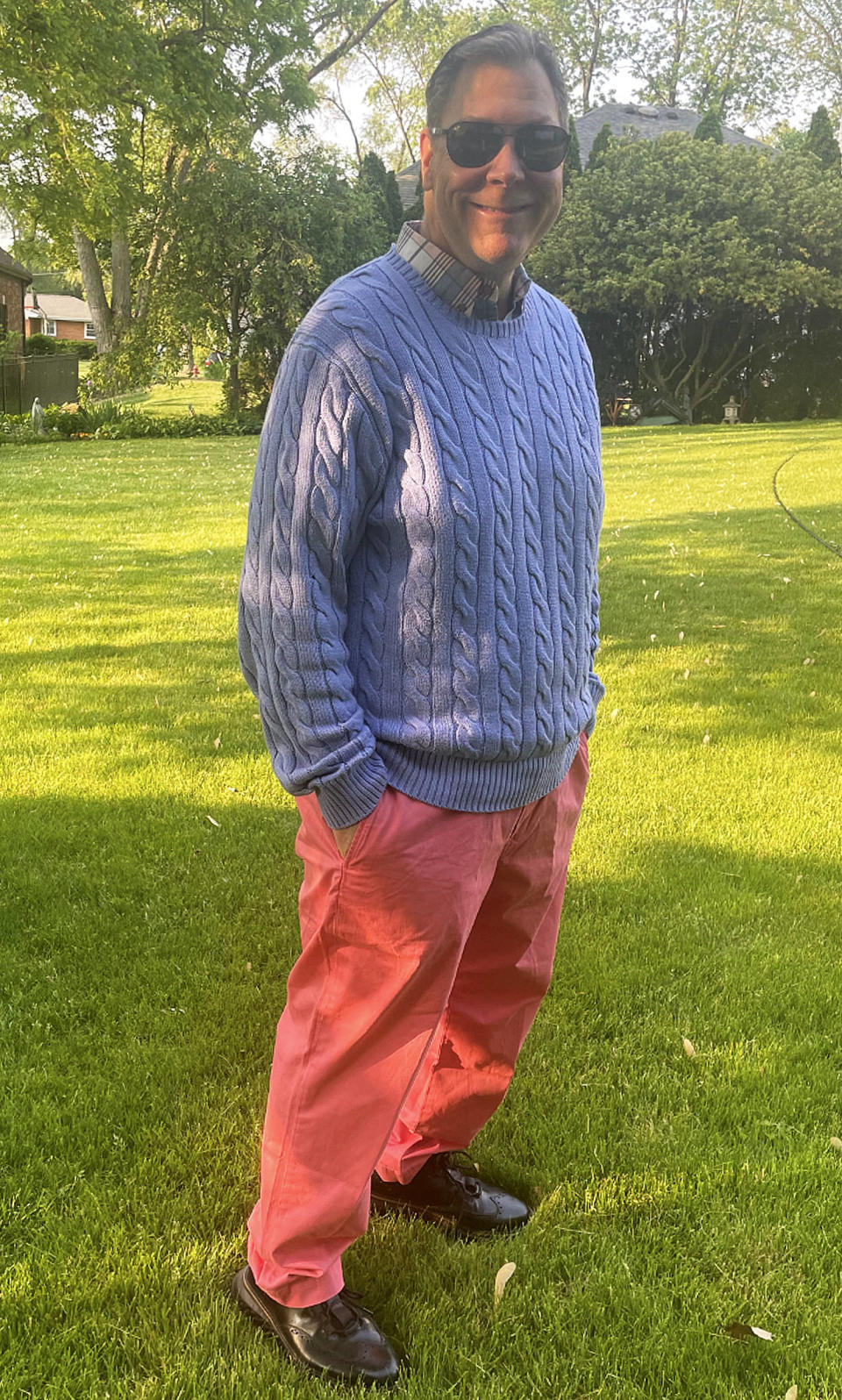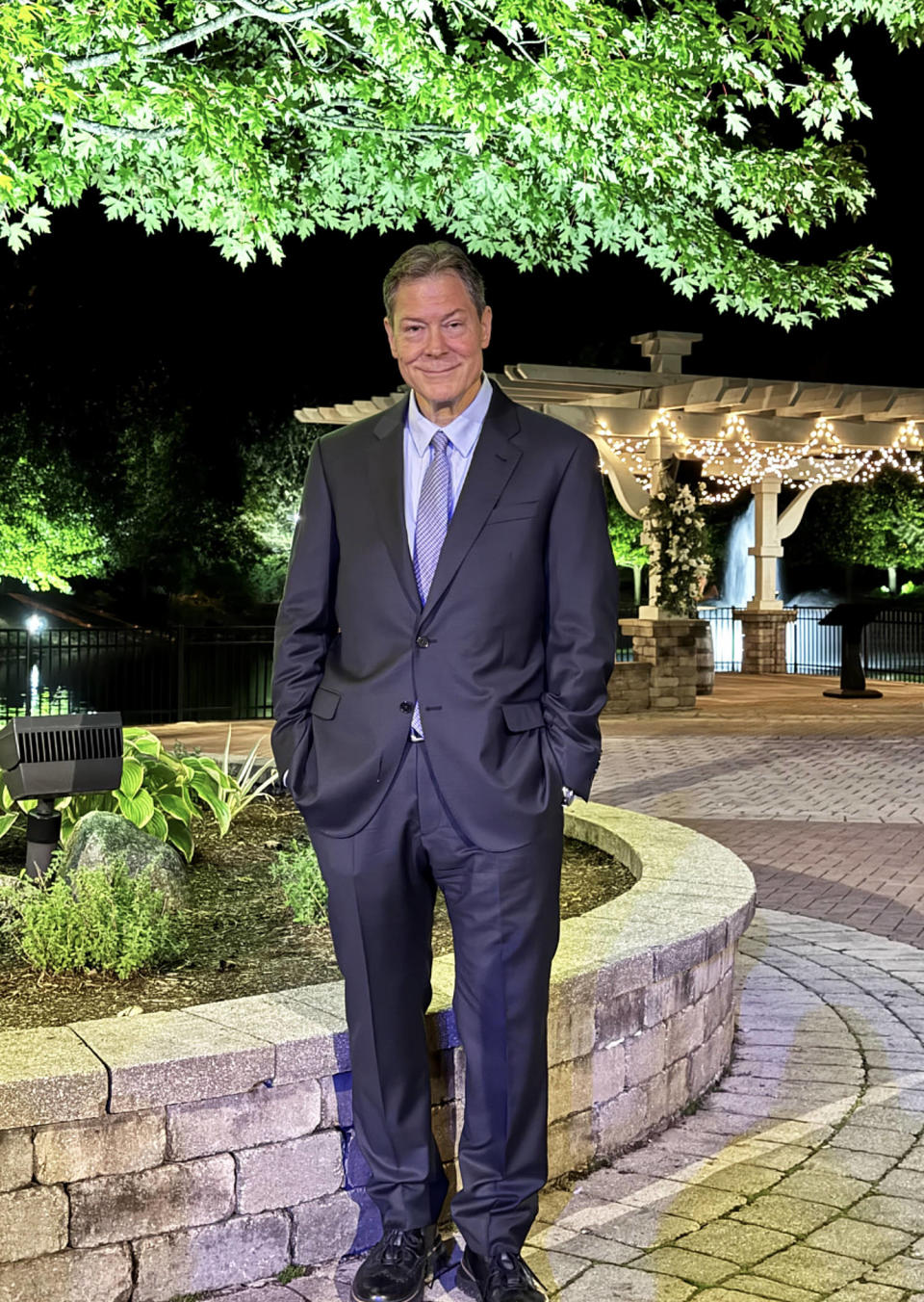'I felt worthless.' How 1 man lost 207 pounds and learned to love himself again
In 2021, Rod Zimmerman of Chicago was facing some serious health issues linked to his weight. He weighed 396 pounds and needed to have a surgical procedure called a heart ablation to treat an irregular heartbeat. “I was freaked out about it,” he tells TODAY.com.
That wasn’t the extent of his health problems. He also had type 2 diabetes, sleep apnea and high blood pressure. He was falling asleep all the time, and even walking was difficult. He struggled with everyday tasks like shopping at the grocery store or even putting on socks.
Zimmerman, 55, was battling mental health issues, too. “I was fighting depression. I was ashamed. I felt worthless and extremely self-conscious. The body shaming, negative comments and looks of judgment from people — even loved ones — was damaging and extremely hurtful. My emotional, physical and mental well-being was a constant struggle as I was in real pain,” he says. “I felt like a piece of me was dying every day.”

After 17 years together, Zimmerman ended his engagement because his fiancée didn’t understand what he was going through and minimized his struggles with losing weight. He worried he would miss out on his future with his son and granddaughter. “But what really haunted me was the real possibility that my parents would have to bury their own child, which no parent should have to do,” he says.
Zimmerman knew he needed to make some changes. “I realized it wasn’t too late to take back control of my life,” he says. In 27 months, he lost 207 pounds, and he now weighs 189 pounds. His waist is 20 inches smaller, and he’s traded his 3XL and 4XL shirts for large and extra-large.
“It feels surreal to me. I call it Rod 2.0,” he says.
Here’s how he did it.

A friend encouraged him to try WeightWatchers
Zimmerman recognized that he didn’t gain the weight overnight, and losing weight and living a healthier lifestyle would take time and commitment. He talked to a friend who was having success with WeightWatchers and decided to attend an in-person meeting in July 2021.
With the program, Zimmerman has a budget of "Points" he can spend on his food. Staying at or below his number helped drive his weight loss.
“The app and the point-based food system helped guide me toward nutritious foods and tracking my eating. I could decide how I wanted to best utilize those points and make decisions about what I wanted,” he says. “I used the 'Points' as kind of a checkbook, seeing how many I had remaining as the day went on and deciding what I was going to do. I learned to take it one meal at a time.”
He liked that he could change his lifestyle, create healthy habits and still eat the foods he loves, including pizza and pasta. That was critical to his success, because he travels a lot for work and he doesn’t like to cook, so he eats out about 70% of the time. “That wasn’t going to change, so whatever I had to do, it had to be incorporated into that,” he says.
Here’s what he eats in a typical day:
Breakfast: Cereal with almond and coconut milk.
Snack: Protein bar.
Dinner: Chicken or fish — “Anything that’s on the menu, based on how I’m doing with 'Points' that day,” he says.
He eats lots of vegetables, which are "ZeroPoints" foods in the WeightWatchers system. “I’ve eaten more vegetables in the last two and a half years than I probably have in the last ten years,” he says.

He discovered that weight loss takes more than just a focus on food
Zimmerman learned that food, activity, mindset, sleep and support were all crucial for weight-loss success: “I had no idea all this stuff was tied to losing weight. I thought it was just, ‘Stop putting food in your mouth.’ But there is so much more to it than that.”
He had been inactive, so he tried walking short distances, but even that was too difficult. So, he invested in a Peloton bike and started riding it for ten minutes at a time. “I kept at it, and I saw the benefit of exercise,” he says.
Next, he focused on his mindset. “Mental health is just as important as physical health, and I had to learn how to love myself again and heal from my emotional pain,” he says.
He leaned on support from his family, friends, coworkers and WeightWatchers family. “I needed to be open about my journey, bring them in and share what I was going through,” he says. “My work family really rallied behind me and played an integral role in my progress. The support from the in-person WeightWatchers meetings and the community on the app fostered accountability for me that was critical to my success and maintained my positive momentum.”
He marked his first 100 pounds of weight loss with the friend who first encouraged him: “We attended a meeting together and she was there to celebrate with me in a room full of people. She supported me throughout the journey.”

He found ways to stay motivated when he hit a weight-loss plateau
Zimmerman found that there were weeks when he felt like he did everything right, but the scale didn’t budge.
He says, “That’s when I really learned to lean on my non-scale victories. What did I do for the week that was positive and created healthy habits? What commitment did I make for the week that I was able to do?” he says. “Those nonscale victories helped ground me, keep my mindset positive and put other things in perspective.”
Those successes might include:
Sleeping at least seven hours a night.
At least 30 minutes of movement three days a week.
Drinking 40 ounces of water five days a week.

He’s seen major changes in his life
Zimmerman’s weight loss has helped him improve his health. He no longer has type 2 diabetes, high blood pressure or sleep apnea and his heart issues have greatly improved. “My doctors are just really amazed at how far I’ve come,” he says.
His mental health is also better. “I don’t feel like I’m fighting depression. I have a really positive attitude, and I am truly grateful to be where I am today. I’m getting my confidence back, learning to love myself again and understanding my self-worth. I’ve come a long way, and I like what I see in the mirror,” he says.
He’s not worried about needing a seat belt extender on an airplane. And he can do something as simple as crossing his legs — “I always wanted to cross my legs and I couldn’t,” he says.
He has a lot more energy. “I look for any opportunity for movement. Every hour, I get up and walk around the warehouse I manage,” he says. “I used to pay people to shovel mulch at my house. Now I have them drop it in my driveway and I do it myself. I feel so much better.”
Last year, he logged 22,000 minutes on his Peloton bike. With the energy he has now, he went whitewater rafting and hiking in Colorado, and recently, he was able to ski at Keystone for the first time in 28 years. Next up for him are kayaking and zip-lining.
“I’m really enjoying life,” he says. “And I know if I can do this, other people can, too. I’m just a normal guy, and I started off at 396 pounds.”
This article was originally published on TODAY.com

